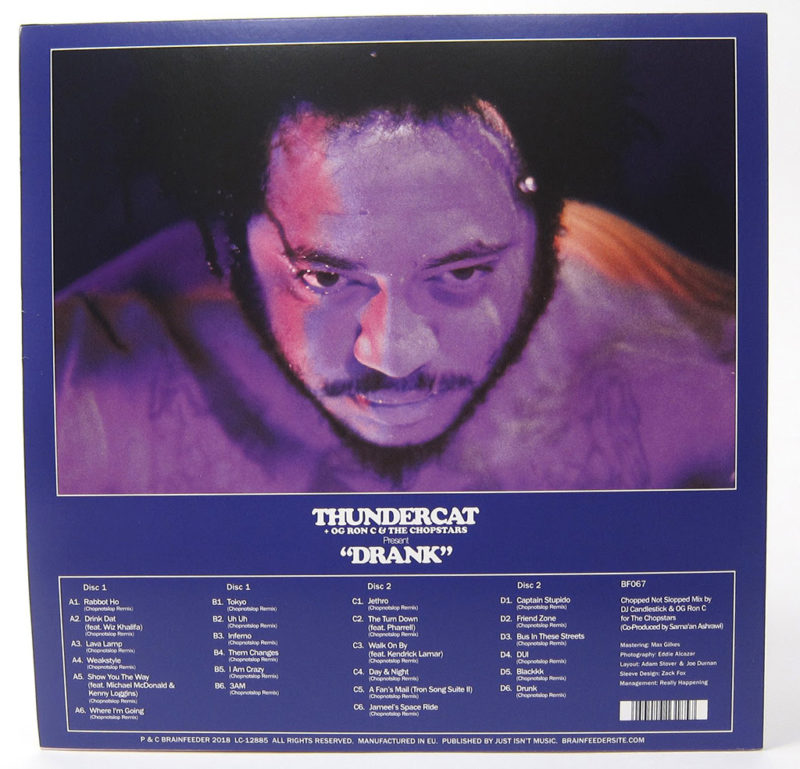
Early Work
A novel by Andrew Martin
The characters in Andrew Martin’s splendid first book are hungry. Hungry for booze and good food, for transcendence, for success and sex. They are, in other words, normal human beings. But for all their hunger, nothing much happens to them. They hang out and talk and smoke weed and try to write fiction. There’s a love triangle. Despite this minimalist framework, Early Work is utterly enthralling. The book moves at a leisurely, almost Victorian pace, while simultaneously presenting a vivid portrait of our hectic, info-saturated lives. This dynamic is somewhat paradoxical, but it cuts to the heart of what Martin has done: married the shape and texture of a more classical work with modern subject material. The result is an undeniably elegant debut, full of humor and insight and, most crucially, the life of the mind, a thing that many writers attempt to capture but seldom do.
—Daniel Gumbiner, Managing Editor
Drank
An album by Thundercat

We talk a lot about slow food and slow eating and slow sex and slow art but rarely, in this day and age, do we talk about slow music. In spite of our collective disregard, there is a history of leisurely modern grooves. In the ’70s, some soul and dance songs were a counterpoint to disco’s frantic clip. Among many others, there were epic vamp-outs by Weldon Irvine (“Morning Sunrise”), and Donna Summer, whose seventeen-minute version of “Love to Love You Baby” probably resulted in the eventual gestation of many many babies who are now forty-two-year-old people. Or how about the sexy, meandering first third of Diana Ross’s “Love Hangover”? Outside of alternative R&B and doom-metal, a lot of contemporary music is uptempo, or at least thematically so. This is especially true of the non-ballads played on the radio. Thundercat’s Drank, released earlier this year, is the chopped-and-screwed remix of his 2017 album, Drunk, and moves at the sedate pace of those ’70s slow-drags.
On Drank, all of the songs are made, with the help of collaborators DJ Candlestick and OG Ron C, using the chopped-and-screwed technique. The method involves a DJ slowing a track’s tempo, or screwing it, to somewhere under 70 beats per minute, and intermittently scratching and skipping it, or chopping it, in order to create more texture within the music. Created by DJ Screw in the early ’90s, the subgenre continues to influence Houston’s rap scene, and hip-hop culture at large. Drank is a play on both the title of the original album and the nickname of the codeine syrup that played a big part in the music’s creation. Chopped-and-screwed tunes make one’s surroundings phantasmagorical, as does the...
You have reached your article limit
Sign up for a digital subscription and continue reading all new issues, plus our entire archives, for just $1.50/month.
Already a subscriber? Sign in




